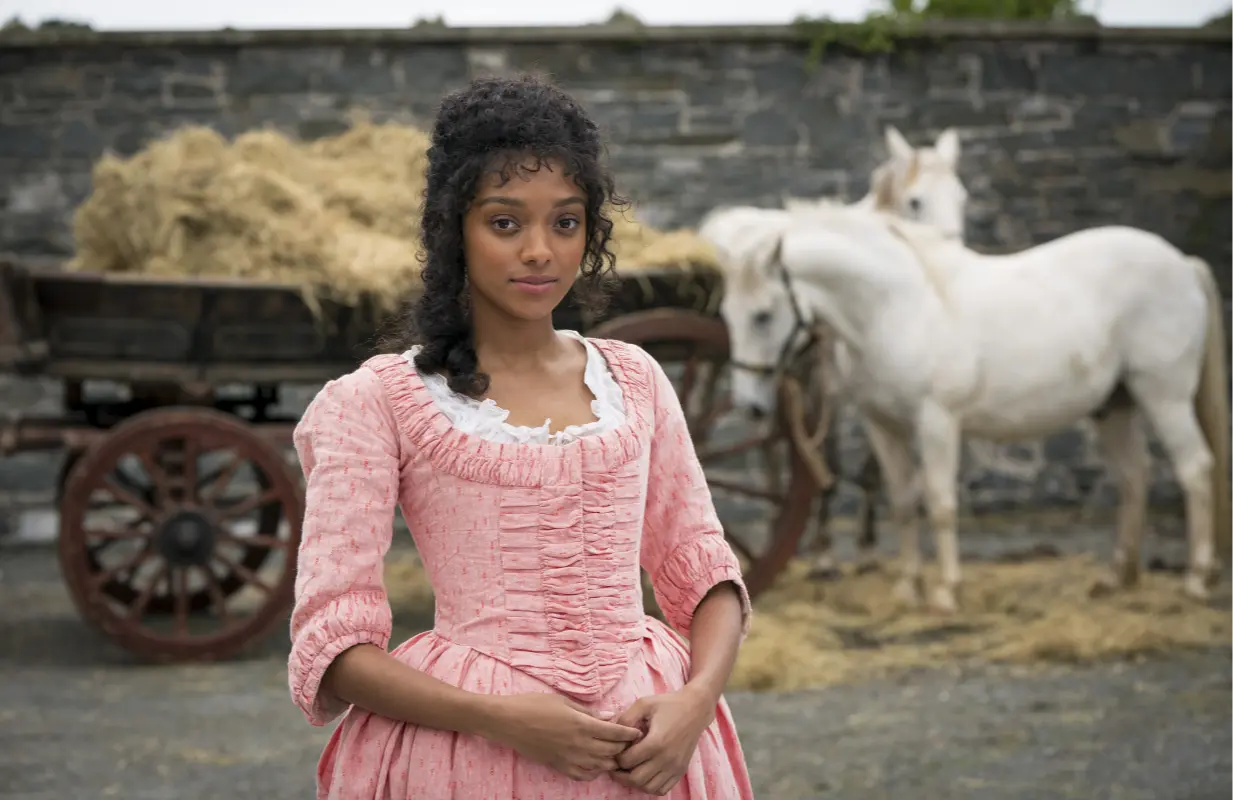A Few Salty Women Can't Make PBS's Tom Jones a Feminist Fairy Tale
-
 Sophie Wilde in Tom Jones (Photo: Mammoth Films/Masterpiece)
Sophie Wilde in Tom Jones (Photo: Mammoth Films/Masterpiece)Tom Jones feels awfully familiar. Anyone who’s seen a tasteful costume drama will recognize the ingredients of PBS Masterpiece’s new adaptation of Henry Fielding’s classic novel, from the stilted language to the string-soaked score to the languid pacing. It’s the television version of an individually wrapped snack cake: uninspired, but sweet enough.
It would’ve been possible to add irony or darkness to Fielding’s story — about Tom Jones (Solly McLeod), a young man of low birth who falls for an heiress named Sophia (Sophie Wilde) — but creator-screenwriter Gwyneth Hughes delivers a gentle fairy tale instead. In the opening scene, Sophia’s voiceover even promises a happy ending. Director Georgia Parris follows this lead, filling the screen with sunlight and letting her actors play up the story’s shenanigans. Fussy housemaids guffaw at coarse jokes and snooty lords make the smarmiest possible faces to show they detest the ill-born. It often plays like a boulevard farce, though the actors are good enough to pull laughs from their obvious bits. Alun Armstrong is especially lively as Squire Western, Sophia’s grandfather. While the old man never knows what’s going on, he likes to shout commands at people anyway. Armstrong’s lusty blustering makes him seem like a charming scoundrel who gets a kick out of needling people all the time.
Speaking of scoundrels, the series leans into Tom’s roguish behavior. Though he’s good at heart and ultimately does the right thing, the character is famously randy, seducing a string of women on his journey to true love. Hughes includes plenty of his flings in her script, and Parris always lets the camera linger over McLeod’s incredibly muscular torso. She even gets him shirtless in a few scenes where it’s not absolutely necessary, though it would be rude to complain.
McLeod’s hunkiness would be even more satisfying if he paired it with sly intelligence, like Albert Finney did in the Oscar-winning, 1963 film. Mostly, however, he makes Tom an affably blank slate, all smiles and no wiles. He only flickers to life when Hannah Waddingham (Ted Lasso) strides on screen as the unscrupulous widow Lady Bellaston, who decides to make Tom her sexual pet. Her haughtiness sparks a fire in McLeod, and their scenes crackle.
It can’t last, though. Lady Bellaston is selfish and cruel, and therefore, she must be cast out of this feel-good story. And it’s around her exit that a fundamental contradiction emerges between the series' goals and the fundamental source material's fundamental naturel. Over and over, Hughes tries to give the female characters a modern sense of independence. Sophia frequently says she doesn’t want to be owned by a husband. Two older women end the show happier because they don’t have men. And notably, all of the women Tom beds are shown having a delightful time in the sheets. Their sexual pleasure is its own kind of rebuke to constraining sexual politics.
But Lady Bellaston is still punished for her erotic manipulations. Sophia still ends up married, no matter what she says, and more to the point, she stays a virgin until her wedding day. Despite all the sex people are having around her, she’s in a story that implicitly prefers a heroine’s so-called purity. Even more than McLeod’s vapid performance and the corsets-by-numbers production values, this fealty to rigid old beliefs condemns this adaptation to be a pleasant distraction at best. Enjoying it means willfully overlooking its half-hearted girl power and focusing entirely on its superficial pleasures. That’s a lot of effort for comfort food.
Tom Jones premieres Sunday, April 30 at 9:00 PM ET on PBS. Join the discussion about the show in our forums.
Mark Blankenship has been writing about arts and culture for twenty years, with bylines in The New York Times, Variety, Vulture, Fortune, and many others. You can hear him on the pop music podcast Mark and Sarah Talk About Songs.
TOPICS: Tom Jones, PBS, Gwyneth Hughes, Hannah Waddingham, Solly McLeod, Sophie Wilde